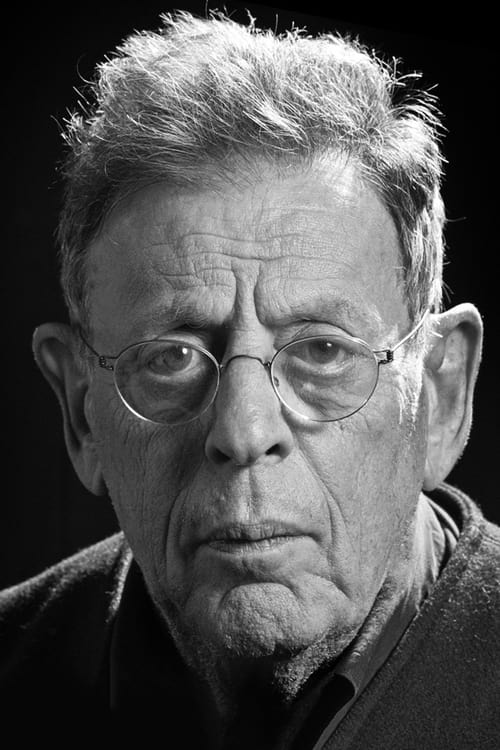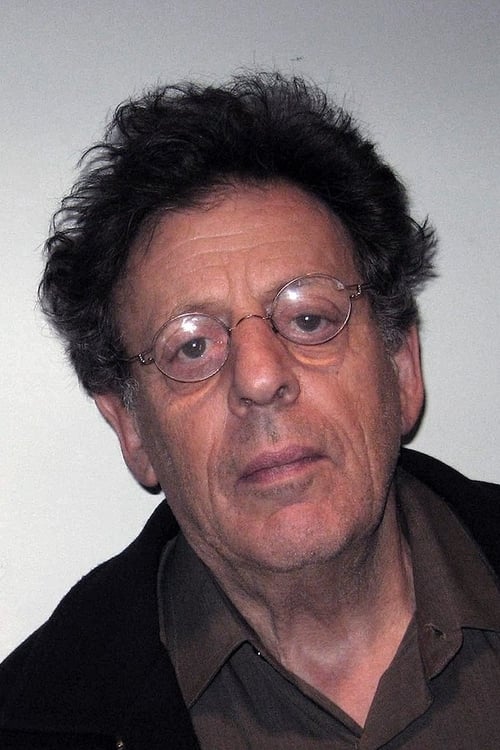
Self

Music
Once Within a Time is an anarchic comedy told without words, a sensory feast to be felt through art and music. This multidisciplinary work shows us life on Earth as humanity clashes with the five fundamental elements—earth, air, water, fire, and money— headed towards a critical moment of choice between annihilation and redemption.

Music
A visualisation of my multimedia poem for Year 11 English Advanced. I had to write the poem based around my chosen quote from a Gwen Harwood poem. I chose "Dreams drip to stone" from Oyster Cove (1971). The story follows a middle-aged woman who regrets the choices she made in her prior years.
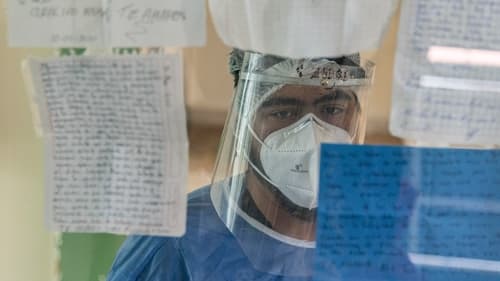
Music
Letters from a distance documents a communication exercise thought out by healthcare workers from a public hospital in Mexico City to help with the distance between COVID-19 patients and their family members through letters, that eventually turn into video messages or photographs during the peak of the pandemic giving people hope and certainty. It is also a voyage through the lives of mexican families who faced the most painful pandemic, due to their social, economic and political contexts while being moved by hope and love.

Artist Enid Baxter Ryce created an experimental documentary with a musical score by Philip Glass to portray, in moving images, the history of "atmospheric rivers," or streams of water vapor in the sky. Just like rivers that move water around on the land, atmospheric rivers—never visible to the naked eye—were a vital force in shaping the colonization of the American West. Today, the evolving scientific and cultural understandings of atmospheric rivers exemplify the complexity and importance of the stories we tell ourselves about science, climate, and the natural world. This film was created at the Days and Nights Festival held at the Philip Glass Center for the Arts, Science, and the Environment.

Music
Artist Enid Baxter Ryce created an experimental documentary with a musical score by Philip Glass to portray, in moving images, the history of "atmospheric rivers," or streams of water vapor in the sky. Just like rivers that move water around on the land, atmospheric rivers—never visible to the naked eye—were a vital force in shaping the colonization of the American West. Today, the evolving scientific and cultural understandings of atmospheric rivers exemplify the complexity and importance of the stories we tell ourselves about science, climate, and the natural world. This film was created at the Days and Nights Festival held at the Philip Glass Center for the Arts, Science, and the Environment.

Sound
Based on a story by Franz Kafka, this Philip Glass opera is set at the turn of the 20th century on a remote island where a high-ranking visitor arrives to witness the use of a strange machine in the execution of a prisoner. It is a parable for the consequences of the abuse of power and corruption.

Original Music Composer
Akhnaten is set in Ancient Egypt, and based on the accession to the throne of the pharaoh Amenhotep IV – thought to have been around 1351BC – on his religious convictions, and the consequences of his actions. Presented as a combination of song, dance and music, the opera has a libretto by Philip Glass, Shalom Goldmann, Robert Israël and Richard Ridell, with the text drawing on ancient hymns, prayers and inscriptions, sung in their original Egyptian, Hebrew and Akkadian form. Produced by the Opéra de Nice Côte d’Azur as part of the Festival MANCA.

Music
Watch Philip Glass and the Philip Glass Ensemble perform at the Days and Nights Festival in Big Sur. An evening of Glass's seminal works composed specifically for the ensemble -- the principal performers of his work since 1968--featuring Music in Similar Motion, Façades featuring Jon Gibson, Building from Einstein on the Beach, excerpts from Music in Twelve Parts, and Dance IX from In the Upper Room.

Writer
Philip Glass’ opera “Akhnaten”, premiered in Stuttgart in 1984, forms the third part of the portrait opera trilogy about personalities who have influenced the course of human history. The conclusion of the trilogy deals with the ancient Egyptian pharaoh Akhenaten, who attempted to establish a kind of monotheistic cult around the god Aton during his reign in the 14th century BC, but failed due to the resistance of the priesthood. The production presented here was undoubtedly one of the very great successes of the 2019/20 season at New York’s Metropolitan Opera, due not only to the outstanding cast of singers (led by countertenor Anthony Roth Costanzo) but also to Phelim McDermott’s imaginative staging, which captivates with sometimes breathtaking imagery.

Music
Philip Glass’ opera “Akhnaten”, premiered in Stuttgart in 1984, forms the third part of the portrait opera trilogy about personalities who have influenced the course of human history. The conclusion of the trilogy deals with the ancient Egyptian pharaoh Akhenaten, who attempted to establish a kind of monotheistic cult around the god Aton during his reign in the 14th century BC, but failed due to the resistance of the priesthood. The production presented here was undoubtedly one of the very great successes of the 2019/20 season at New York’s Metropolitan Opera, due not only to the outstanding cast of singers (led by countertenor Anthony Roth Costanzo) but also to Phelim McDermott’s imaginative staging, which captivates with sometimes breathtaking imagery.

Music
Universal Machine is a meditation on the ultimate fate of humanity's relationship with technology. Featuring music by Philip Glass, the film follows a gifted young woman who awakens into a post-apocalyptic world and must transcend a violent confrontation with a lifelike Artificial Intelligence. Progressing through an elaborate sequence of dance and fight choreography, the action of the film beckons towards an evolved future of peace and compassion.
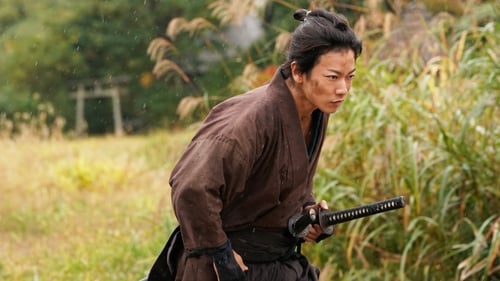
Original Music Composer
When feudal lord Itakura Katsuakira decides to prepare his samurai troops for the onslaught of modernization by having them compete in a marathon, his independent-minded daughter Yuki secretly joins the race.
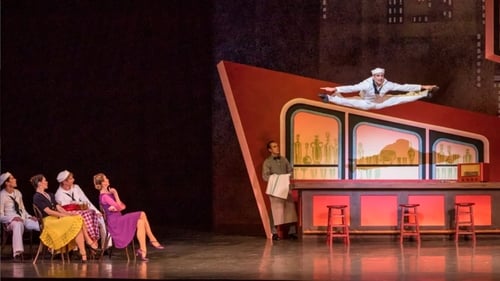
Original Music Composer
Jerome Robbins considered the Paris Opera Ballet as his second home after the New York City Ballet. This production in his honour brings together works displaying the infinite diversity of his sources of inspiration and his genius on stage. Be it in the energy of the large-scale Glass Pieces or the intimate sweetness of Afternoon of a Faun and A Suite of Dances, there emerges that rare capacity to make bodies follow the flow in a living comprehension of music. As the celebrated ballet Fancy Free, a veritable theatrical portrait of an era, enters the repertoire, Robbins reveals another facet of his talent.

Musical
"Taniel" looks at the last months of poet Taniel Varoujan's life, who was murdered in the Armenian Genocide of 1915. The film's narrative is heard in poetry and seen through Film Noir images.
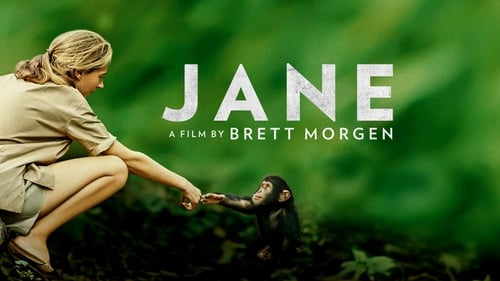
Original Music Composer
Drawing from never-before-seen footage that has been tucked away in the National Geographic archives, director Brett Morgen tells the story of Jane Goodall, a woman whose chimpanzee research revolutionized our understanding of the natural world.

Music
This take on the famously dark Brothers Grimm fairy tale tells of a Wicked Stepmother who murders her stepson and serves him up in a stew to his unsuspecting father. The boy’s sister buries her brother’s bones under a nearby Juniper Tree, and the child’s spirit returns as a singing bird who wreaks vengeance on the evil Stepmother before being restored to life in the bosom of his family.

Original Music Composer
In his 1992 documentary "Compassion in Exile", filmmaker Mickey Lemle created a groundbreaking portrait of the 14th Dalai Lama. His new film takes a fresh look at what is important for His Holiness, who is now in his 80s: the historic confrontation between Tibet and China; his influence in political, spiritual and educational spheres; his work with neuroscientists; and his personal feelings on aging, dying and whether he will be the last Dalai Lama. His impact on the West has grown over the 25 years since the earlier film, and we see some of his influence at work in classes and scientific studies. Artfully weaving interviews and accounts from family, friends and people he inspired, this film vibrantly conveys the Dalai Lama’s humor, wisdom and compassion

Self
In his 1992 documentary "Compassion in Exile", filmmaker Mickey Lemle created a groundbreaking portrait of the 14th Dalai Lama. His new film takes a fresh look at what is important for His Holiness, who is now in his 80s: the historic confrontation between Tibet and China; his influence in political, spiritual and educational spheres; his work with neuroscientists; and his personal feelings on aging, dying and whether he will be the last Dalai Lama. His impact on the West has grown over the 25 years since the earlier film, and we see some of his influence at work in classes and scientific studies. Artfully weaving interviews and accounts from family, friends and people he inspired, this film vibrantly conveys the Dalai Lama’s humor, wisdom and compassion

Original Music Composer
At the heart of Rio de Janeiro's downtown, an empty square with a dry fountain and an underground parking. There was located the Monroe Palace, that once housed the Senate, and was mysteriously demolished forty years ago. A history of sabers and lions, military and architects, past and future.

Self (archive footage)
When Howard Brookner lost his life to AIDS in 1989, the 35-year-old director had completed two feature documentaries and was in post-production on his narrative debut, Bloodhounds of Broadway. Twenty-five years later, his nephew, Aaron, sets out on a quest to find the lost negative of Burroughs: The Movie, his uncle's critically-acclaimed portrait of legendary author William S. Burroughs. When Aaron uncovers Howard's extensive archive in Burroughs’ bunker, it not only revives the film for a new generation, but also opens a vibrant window on New York City’s creative culture from the 1970s and ‘80s, and inspires a wide-ranging exploration of his beloved uncle's legacy.

Himself
This in-depth look into the powerhouse industries of big-game hunting, breeding and wildlife conservation in the U.S. and Africa unravels the complex consequences of treating animals as commodities.

Music
As part of a new collaboration with the famous composer Philip Glass, French pianists Katia and Marielle Labèque perform the European premiere of Glass's Concerto for Two Pianos with the Orchester de Paris.

Original Music Composer
Four young outsiders teleport to a dangerous universe, which alters their physical form in shocking ways. Their lives irrevocably upended, the team must learn to harness their daunting new abilities and work together to save Earth from a former friend turned enemy.

Music
In a Russian coastal town, Kolya is forced to fight the corrupt mayor when he is told that his house will be demolished. He recruits a lawyer friend to help, but the man's arrival brings further misfortune for Kolya and his family.

Himself
A documentary that explores the challenges that a life in music can bring.
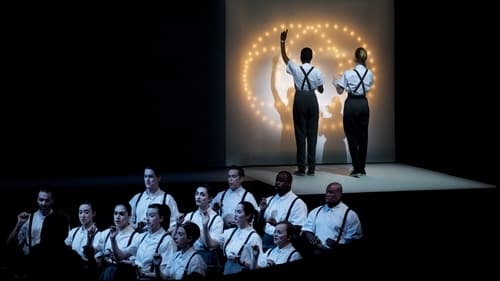
Writer
This seminal work of avant-garde opera from composer Philip Glass and director Robert Wilson arrives full-circle, coming to France, the site of its 1976 Avignon Festival world premiere, at the tail end of this 2014 revival tour for a landmark Theâtre du Châtelet production and a first ever filming by award-winning arts filmmaker Don Kent. Eschewing conventional narrative, the opera revolves loosely around pacifist Einstein’s relationship to the creation of the atomic bomb.

Original Music Composer
This seminal work of avant-garde opera from composer Philip Glass and director Robert Wilson arrives full-circle, coming to France, the site of its 1976 Avignon Festival world premiere, at the tail end of this 2014 revival tour for a landmark Theâtre du Châtelet production and a first ever filming by award-winning arts filmmaker Don Kent. Eschewing conventional narrative, the opera revolves loosely around pacifist Einstein’s relationship to the creation of the atomic bomb.

Original Music Composer
The last days of the American icon Walt Disney form a powerful and poignant subject for Philip Glass's latest opera, which was filmed at its first performances in Madrid in January 2013.

Music
From the director of KOYAANISQATSI, an astonishing film that documents the drama of how we both live and witness what we experience. Shot in rich black and white Godfrey Reggio's latest film finds the full spectrum of emotion in human faces, gorgeous landscapes and even the behavior of an especially expressive gorilla.

Original Music Composer
Original Super 8 footage shot by Dr. Oliver Sacks of his patients at Beth Abraham Hospital, Bronx, NY, who were administered the drug L-Dopa in the summer of 1969 and “awakened” after decades of inactivity is featured in this cine-poem that combines archival footage with a score for solo saxophone composed by Philip Glass.

Music
A prisoner recently escaped from prison tries to recover the loot he hid a few years earlier in a remote and secluded village, but what there is is a sentence worse than jail. Claims elderly, strange disappearances, spirits, a peculiar priest and to the very archpriest of Santiago star in a horror story, humor and fantasy. First production of stop-motion with clay made in Spain. It features the voices of Luis Tosar, Geraldine Chaplin, Manuel Manquiña, Jorge Sanz and Paul Naschy among others.
Since October 2022, on the director's YouTube channel, Fernando Cortizo: "FREE VIEWING (SUBSCRIBE!) and, if you like the film, you have the POSSIBILITY TO MAKE DONATIONS here below TO HELP PAY THE DEBTS of the cost of making it, because did not recover the cost of production due to the SCAM OF THE DISTRIBUTORS.". (Spanish and Galician audio, multilanguage subtitles) https://www.youtube.com/watch?v=4h7yoEMrL6A
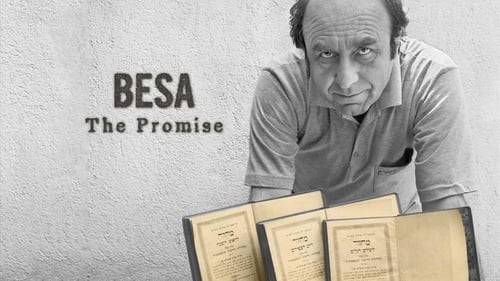
Original Music Composer
A documentary exploring how Albanians, including many Muslims, helped and sheltered Jewish refugees during WWII at their own risk, and trying to help the son of an Albanian baker that housed a Jewish family for a year return some Hebrew books that the family had to leave behind.
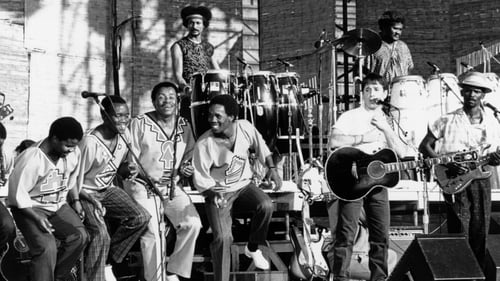
Self
Paul Simon returns to South Africa to explore the incredible journey of his historic Graceland album, including the political backlash he received for allegedly breaking the UN cultural boycott of South Africa designed to end the Apartheid regime. On the 25th anniversary of Paul Simon's GRACELAND, acclaimed documentary filmmaker Joe Berlinger offers a glimpse at the controversy surrounding the decision to record the album in South Africa despite a UN boycott of the nation, which was aimed at ending apartheid. In the run-up to an eagerly anticipated reunion concert, Simon, Quincy Jones, Peter Gabriel, David Byrne, Harry Belafonte, Paul McCartney and others reflect on the decision to record with local artists in South Africa, and the cultural impact of the album that delivered such hits as "I Know What I Know" and "You Can Call Me Al."

Music
A documentary about the American postmodern dancer and choreographer Lucinda Childs. For Dance, a choreography from '79 set to the music of Philip Glass in film/decor of Sol Lewitt, Lucinda received a Guggenheim Fellowship. This masterpiece is the leitmotiv in this documentary. We see Lucinda in NY where she re-stages Dance during the Lincoln Center Out of Doors 2010. We also follow her in Arnhem during the preparations of the piece at Introdans, where it will premiere as a part of ”Sterren en Strepen” (Stars and Stripes). For this show Introdans united the king and queen of modern dance, Hans van Manen and Lucinda Childs, in order to show their pieces together. We will also be speaking to prominent figures from the dance scene about her influence on Dutch modern dance.

Self
A documentary about the American postmodern dancer and choreographer Lucinda Childs. For Dance, a choreography from '79 set to the music of Philip Glass in film/decor of Sol Lewitt, Lucinda received a Guggenheim Fellowship. This masterpiece is the leitmotiv in this documentary. We see Lucinda in NY where she re-stages Dance during the Lincoln Center Out of Doors 2010. We also follow her in Arnhem during the preparations of the piece at Introdans, where it will premiere as a part of ”Sterren en Strepen” (Stars and Stripes). For this show Introdans united the king and queen of modern dance, Hans van Manen and Lucinda Childs, in order to show their pieces together. We will also be speaking to prominent figures from the dance scene about her influence on Dutch modern dance.

Writer
Following the success of his first foray into opera, Einstein on the Beach, revolutionary American composer and musician Philip Glass soon turned to another great figure of the 20th century for inspiration. Set to lines from the Hindu Bhagavad Gita, Satyagraha depicts scenes from the life of Gandhi as he developed his philosophy of non-violent resistance in South Africa between 1896 and 1913. The opera became the second installment of Glass’s Portrait Trilogy, focused on innovators from across history. Satyagraha arrived at the Met during the 2007–08 season, when director Phelim McDermott made his debut with a production that employed everyday materials like newspaper and corrugated tin to create towering puppets and striking tableaus. In 2011, his staging returned, this time recorded live in HD. In this performance, tenor Richard Croft gives a moving performance as Gandhi, leading a remarkable ensemble cast conducted by Dante Anzolini.

Music
Following the success of his first foray into opera, Einstein on the Beach, revolutionary American composer and musician Philip Glass soon turned to another great figure of the 20th century for inspiration. Set to lines from the Hindu Bhagavad Gita, Satyagraha depicts scenes from the life of Gandhi as he developed his philosophy of non-violent resistance in South Africa between 1896 and 1913. The opera became the second installment of Glass’s Portrait Trilogy, focused on innovators from across history. Satyagraha arrived at the Met during the 2007–08 season, when director Phelim McDermott made his debut with a production that employed everyday materials like newspaper and corrugated tin to create towering puppets and striking tableaus. In 2011, his staging returned, this time recorded live in HD. In this performance, tenor Richard Croft gives a moving performance as Gandhi, leading a remarkable ensemble cast conducted by Dante Anzolini.

Original Music Composer
Filmed over the ensuing years after the attack on New York's World Trade Center, this documentary takes a look a the physical and emotional healing process involved in the aftermath of such a tragedy.
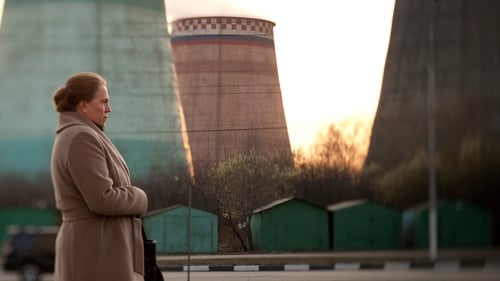
Original Music Composer
Elena is a woman of a certain age, living in a chic Moscow apartment with her wealthy businessman husband Vladimir. While Vladimir is estranged from his daughter, he does not mask his contempt for Elena's own child, who seems to be in constant need of financial assistance. When Vladimir suddenly falls ill and his volatile, nihilistic daughter comes back into the picture, Elena must hatch a plan for her own survival.
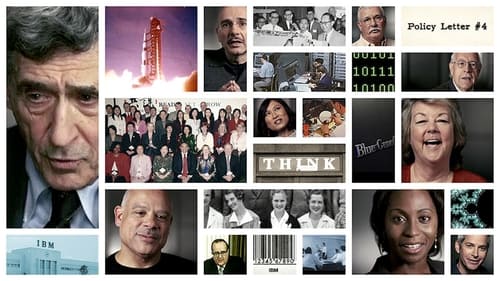
Original Music Composer
What does it mean to be an IBMer? Every employee experiences the company in different ways, but the global impact IBM has made on business and society over the last 100 years gives us all a common framework. "They Were There" is told by first-hand witnesses—current and retired employees and clients—who were there when IBM helped to change the way world works.

Original Music Composer
Live performance of Philip Glass's opera Kepler (2009) by the Landestheater Linz Upper Austrian State Theater in 2011, conducted by Dennis Russell Davies.

The story of music and the music industry told through interviews with musicians, composers and producers across genres.
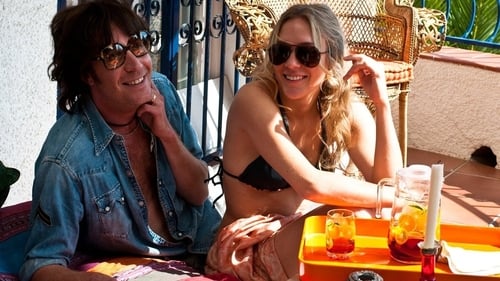
Original Music Composer
Biopic about 1970s Welsh marijuana trafficker Howard Marks, whose inventive smuggling schemes made him a huge success in the drug trade, as well as leading to dealings with both the IRA and British Intelligence. Based on Marks' biography with the same title.

Original Music Composer
The selfish Dr. André Luiz dies and awakes in the limbo called "Umbral". After a painful period in the gruesome swamp, he is rescued and brought in a white light to "Nosso Lar" (meaning "Our Home"). He finds a place of harmony, where people live in peace awaiting

Music
Trans-Action tells the story of an extraordinary woman. Anna Grodzka who in 2011 became the first transgender person in the Polish government, and the third transgender member of government in world history, was born in the male body and decided to finally begin her life as a woman only in her 50s. The film documents the most important chapters in this intimate process of transformation. We observe Anna in her daily activities in Warsaw, we witness her intimate conversations with her son and closest friends.

Music
A man travels across New York City to get a Nathan's Famous hot dog.

A brief overview and focus on composers Philip Glass, Julia Wolfe, John Cage, Steve Reich, Elliott Carter and their contemporaries.
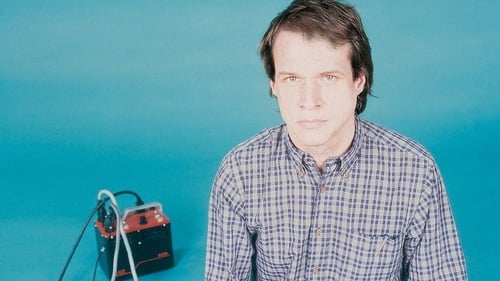
Self
Wild Combination is a visually absorbing portrait of the seminal avant-garde composer, singer-songwriter, cellist, and disco producer Arthur Russell. Before his death in 1992, Arthur prolifically created music that spanned both pop and the transcendent possibilities of abstract art. Now, over fifteen years since his passing, Arthur's work is finally finding its audience. Wolf incorporates rare archival footage and commentary from Arthur's family, friends, and closest collaborators to tell this poignant and important story.

Music
Using stories of items recovered or offered after 9/11 and other tragedies, this film explores the human impulse to create community and reestablish connection in times of upheaval.

In this archival documentary, cinematographer John Bailey, production designer Eiko Ishioka, and composer Philip Glass discuss the conception of Paul Schrader's film, the image of Mishima that they had prior to committing to the project, the manner in which some of his ideas resonated with them, the unusual portrait of Mishima that the film offers, its form and visual style, etc.

Self
An intimate portrait of poet, painter, musician and singer Patti Smith that mirrors the essence of the artist herself.
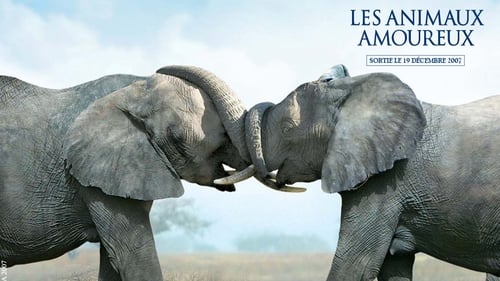
Music
Translated literally as "Animals in Love," the French-language documentary Animaux Amoreux depicts various species of the animal kingdom in courting, mating and reproduction activities. Laurent Charbonnier directs.

Original Music Composer
Scott Hicks documents an eventful year in the career and personal life of distinguished Western classical composer Philip Glass as he interacts with a number of friends and collaborators, who include Chuck Close, Ravi Shankar, and Martin Scorsese.

Himself
Scott Hicks documents an eventful year in the career and personal life of distinguished Western classical composer Philip Glass as he interacts with a number of friends and collaborators, who include Chuck Close, Ravi Shankar, and Martin Scorsese.

Music
A provincial war vet arrives in Moscow and subsequently takes on a gang of bad cops.

Music
The tale of two brothers with serious financial woes. When a third party proposes they turn to crime, things go bad and the two become enemies.
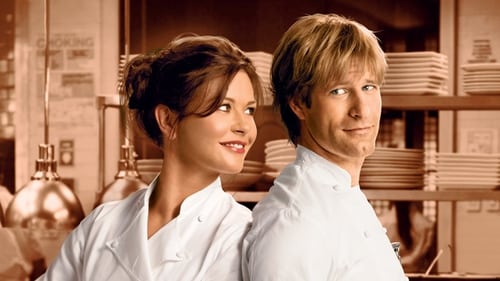
Music
Master chef Kate Armstrong runs her life and her kitchen with intimidating intensity. However, a recipe for disaster may be in the works when she becomes the guardian of her young niece while crossing forks with the brash sous-chef who just joined her staff. Though romance blooms in the face of rivalry, Kate needs to look outside the kitchen to find true happiness.
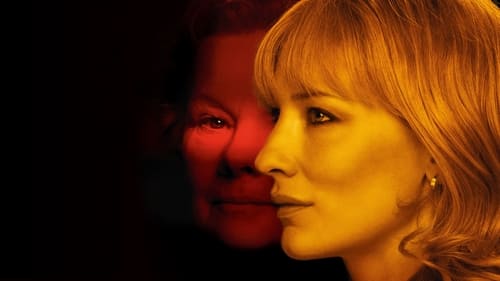
Original Music Composer
A veteran high school teacher befriends a younger art teacher, who is having an affair with one of her 15-year-old students. However, her intentions with this new "friend" also go well beyond platonic friendship.

Hal Willner's Harry Smith Project concerts in London, New York and Los Angeles celebrated the eccentric collector genius and his influential Anthology of American Folk Music. Instrumental in inspiring the urban folk revival of the 1960s, the Anthology's continuing impact on modern music is incalculable. Drawing on this legacy, these landmark shows brought together a remarkable roster of artists performing their own unique interpretations of these classic songs.
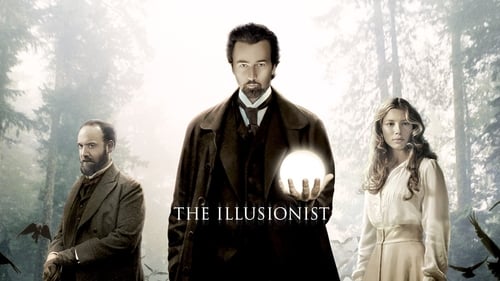
Original Music Composer
With his eye on a lovely aristocrat, a gifted illusionist named Eisenheim uses his powers to win her away from her betrothed, a crown prince. But Eisenheim's scheme creates tumult within the monarchy and ignites the suspicion of a dogged inspector.
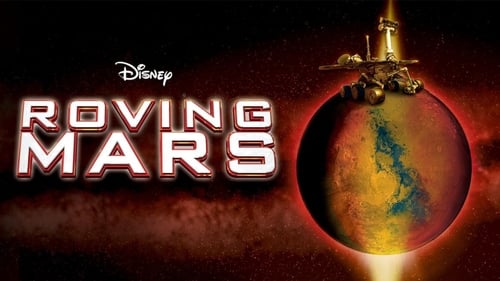
Original Music Composer
Join the Mars rovers Spirit and Opportunity for an awe-inspiring journey to the surface of the mysterious red planet.

Original Music Composer
Christian Frei's documentary traces the tragic tale of the giant Buddhas of Afghanistan's Bamiyan Valley, which stood as monumental landmarks for 1,500 years until 2001, when the Taliban declared that all non-Islamic statues in the country be destroyed. Despite international protest, the statues were blown up. Through interwoven narratives from past and present, Frei's film sheds light on the disturbing consequences of religious fanaticism.

Music
One day, on a whim, Marc decides to shave off the moustache he's worn all of his adult life. He waits patiently for his wife's reaction, but neither she nor his friends seem to notice. Stranger still, when he finally tells them, they all insist he never had a moustache. Is Marc going mad? Is he the victim of some elaborate conspiracy? Or has something in the world's order gone terribly awry?

Himself
The outrageous drag-cabaret duo Kiki and Herb share their past, present and future as they tour the UK. A mixture of live performance and celebrity interviews (featuring Rufus Wainwright and the Scissor Sisters) that reflect on Kiki and Herb's musical influences, fans, politics and family.

Self
Tells the story of David Secter, Canada's first acclaimed indie filmmaker.

Himself
This documentary captures the overflowing energy and activity of one today's greatest composers, Philip Glass, and allows us to follow him from New York to London and from Paris to Boston. He speaks about his beginnings, his moving to Paris for two years of intensive study with Nadia Boulanger, his meeting with Indian musician Ravi Shankar and director Robert Wilson, who had a deep influence on his career. The film also shows him at work on the last details of his opera The Sound of a Voice, directed by Robert Woodruff and conducted by Alan Johnson. Éric Darmon's camera, with its poetic shots and original framings, takes us for a musical journey into seven months of the life of the composer who, rising from the underground scene of the seventies, brought on a revolution in modern theater.
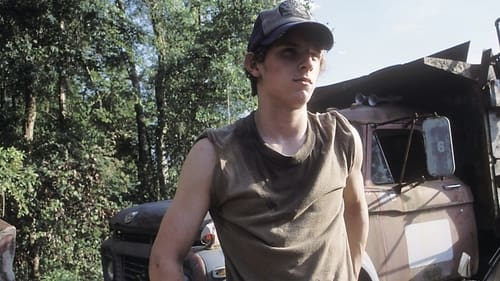
Original Music Composer
The Munns, father John and sons Chris and Tim, recede to the woods of rural Georgia. Their life together is forever changed with the arrival of Uncle Deel, though the tragedy that follows forces troubled Chris to become a man.

Music
While AIDS may be one of the most feared diseases of modern times, there is still a degree of scientific debate over the subject of just how the disease originated, and how the first cases spread. Two filmmakers explore a controversial theory about the beginnings of the disease. Using interviews, newsreel footage, and documented research experiments, The Origin of AIDS examines how a combination of benevolence, careless lab procedures, and the need of a desperate few to cover their tracks could have led to one of the most serious pandemics of the 20th century.
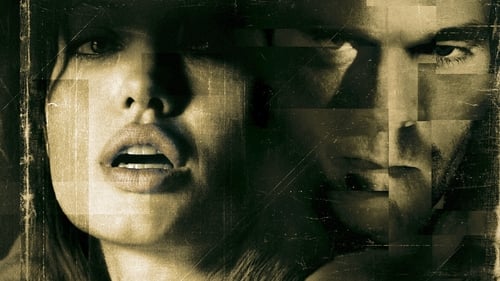
Original Music Composer
Recruited to assist Montreal police in their desperate search for a serial killer who assumes the identities of his victims, FBI profiler Illeana Scott knows it's only a matter of time before the killer strikes again. Her most promising lead is a museum employee who might be the killer's only eyewitness.
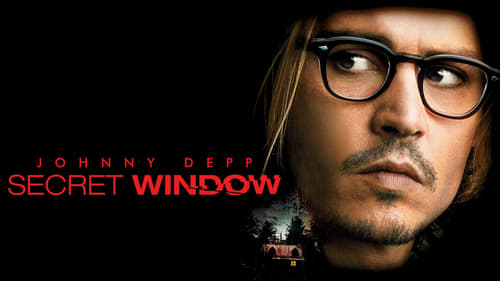
Original Music Composer
Mort Rainey, a writer just emerging from a painful divorce with his ex-wife, is stalked at his remote lake house by a psychotic stranger and would-be scribe who claims Rainey swiped his best story idea. But as Rainey endeavors to prove his innocence, he begins to question his own sanity.
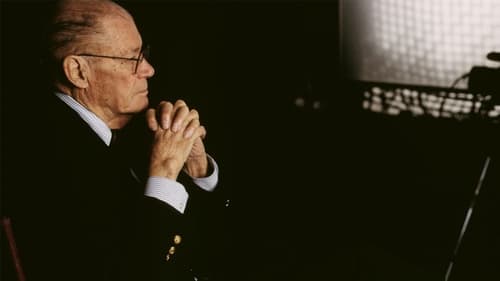
Original Music Composer
Using archival footage, cabinet conversation recordings, and an interview of the 85-year-old Robert McNamara, The Fog of War depicts his life, from working as a WWII whiz-kid military officer, to being the Ford Motor Company's president, to managing the Vietnam War as defense secretary for presidents Kennedy and Johnson.

Music
Female dancers “clothed” in electronically generated flaming colors reincarnate Thomas Edison’s 1894 hand-tinted film “Annabelle Dances”.
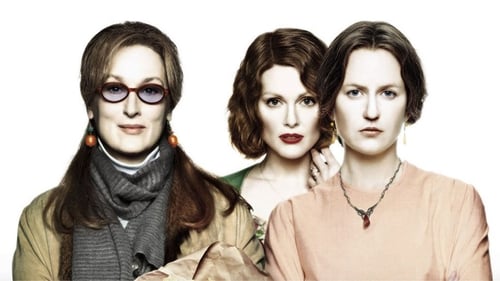
Original Music Composer
"The Hours" is the story of three women searching for more potent, meaningful lives. Each is alive at a different time and place, all are linked by their yearnings and their fears. Their stories intertwine, and finally come together in a surprising, transcendent moment of shared recognition.

Thanks
Filmmaker Godfrey Reggio and composer Philip Glass talk about their 1982 film "Koyaanisqatsi."

Self
Filmmaker Godfrey Reggio and composer Philip Glass discuss their films "Powaqqatsi" (1988) and "Naqoyqatsi" (2002).

Interviewee
Filmmaker Godfrey Reggio and composer Philip Glass talk about their 1982 film "Koyaanisqatsi."

Music
A visual montage portrait of our contemporary world dominated by globalized technology and violence.

Himself (Interviewee)
A documentary about avant-garde composer Harry Partch.

Music
An audiovisual work by Philip Glass and Peter Greenaway.

Self
This film tells the fascinating story of one of the most critically acclaimed careers in independent documentary film making in recent cinema history. This comprehensive overview of Morris' career includes clips of all his important films as well as interviews with collaborators such as Werner Herzog and Phillip Glass.

Music
Can you keep a family secret? Prepare to enter the dark and funny world of the Speck family. Ruled by gray-haired patriarch Vincent Speck, they appear to be your average upper-class American family as they gather together for the weekend. Siblings snipe at each other behind their backs, and the parents worry about the future. Signs that all is not well within the Specks' world begin when Vincent announces the arranged marriage of his son Aldo to a woman he has never met. They are set to marry the next day. Soon after the wedding, the eldest son, Edward, is found dead in his bedroom. What's going on here?

Music
A cousin stays overnight at a couple's place as both of her parents are missing. The husband suspects that she is a vampire as he keeps seeing corpses and her biting into them in his nightmares. Suddenly he becomes a vampire and hell breaks loose and must find a way to put an end to this.
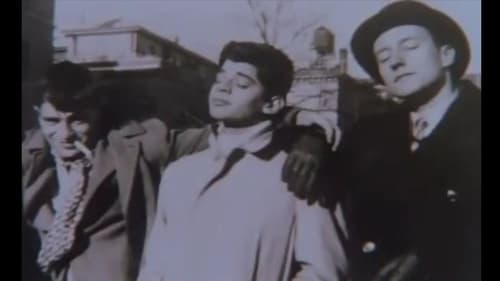
Sound
Traces the Beats from Allen Ginsberg and Jack Kerouac's meeting in 1944 at Columbia University to the deaths of Ginsberg and William S. Burroughs in 1997. Three actors provide dramatic interpretations of the work of these three writers, and the film chronicles their friendships, their arrival into American consciousness, their travels, frequent parodies, Kerouac's death, and Ginsberg's politicization. Their movement connects with bebop, John Cage's music, abstract expressionism, and living theater. In recent interviews, Ginsberg, Burroughs, Kesey, Ferlinghetti, Mailer, Jerry Garcia, Tom Hayden, Gary Snyder, Ed Sanders, and others measure the Beats' meaning and impact.

Self
Traces the Beats from Allen Ginsberg and Jack Kerouac's meeting in 1944 at Columbia University to the deaths of Ginsberg and William S. Burroughs in 1997. Three actors provide dramatic interpretations of the work of these three writers, and the film chronicles their friendships, their arrival into American consciousness, their travels, frequent parodies, Kerouac's death, and Ginsberg's politicization. Their movement connects with bebop, John Cage's music, abstract expressionism, and living theater. In recent interviews, Ginsberg, Burroughs, Kesey, Ferlinghetti, Mailer, Jerry Garcia, Tom Hayden, Gary Snyder, Ed Sanders, and others measure the Beats' meaning and impact.
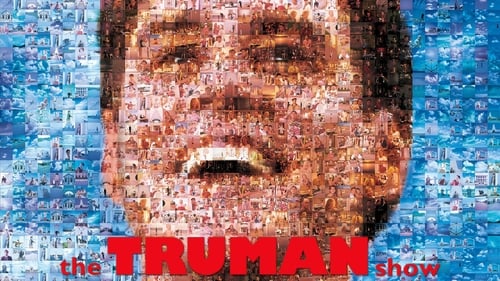
Original Music Composer
Truman Burbank is the star of The Truman Show, a 24-hour-a-day reality TV show that broadcasts every aspect of his life without his knowledge. His entire life has been an unending soap opera for consumption by the rest of the world. And everyone he knows, including his wife and his best friend, is really an actor, paid to be part of his life.

Music
Truman Burbank is the star of The Truman Show, a 24-hour-a-day reality TV show that broadcasts every aspect of his life without his knowledge. His entire life has been an unending soap opera for consumption by the rest of the world. And everyone he knows, including his wife and his best friend, is really an actor, paid to be part of his life.

Keyboard Artist
Truman Burbank is the star of The Truman Show, a 24-hour-a-day reality TV show that broadcasts every aspect of his life without his knowledge. His entire life has been an unending soap opera for consumption by the rest of the world. And everyone he knows, including his wife and his best friend, is really an actor, paid to be part of his life.
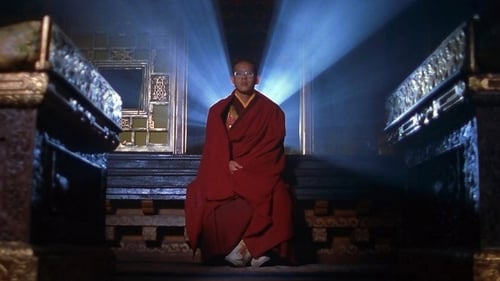
Original Music Composer
The Tibetans refer to the Dalai Lama as 'Kundun', which means 'The Presence'. He was forced to escape from his native home, Tibet, when communist China invaded and enforced an oppressive regime upon the peaceful nation. The Dalai Lama escaped to India in 1959 and has been living in exile in Dharamsala ever since.
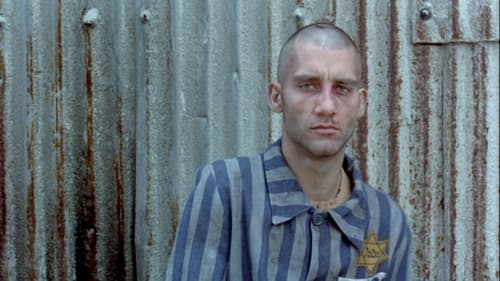
Original Music Composer
Max is a handsome young man who, after a fateful tryst with a German soldier, is forced to run for his life. Eventually Max is placed in a concentration camp where he pretends to be Jewish because in the eyes of the Nazis, gays are the lowest form of human being. But it takes a relationship with an openly gay prisoner to teach Max that without the love of another, life is not worth living.

Original Music Composer
In this documentary, artist-filmmaker Nicholas Hondrogen asks people to describe memorable moments of their lives. Some, such as Norman Lear and Indian activist Russell Means, talk about religion, while composer Philip Glass and film-producer Irwin Winkler discuss the births of their children. Pastor Jess Moody recalls WW II deaths of his friends, and artist Janice Blake remembers being raped.

Himself
In this documentary, artist-filmmaker Nicholas Hondrogen asks people to describe memorable moments of their lives. Some, such as Norman Lear and Indian activist Russell Means, talk about religion, while composer Philip Glass and film-producer Irwin Winkler discuss the births of their children. Pastor Jess Moody recalls WW II deaths of his friends, and artist Janice Blake remembers being raped.

Self
Singer-songwriter Paul Simon had been on the cutting-edge of pop music throughout most of the 1960s and the '70s, first as half of the seminal folk-rock duo Simon & Garfunkel, and then as a well-received solo artist. But the rise of 1980s rock and new wave saw a decline in Simon's commercial success, and the singer responded by experimenting with different musical styles--most notably, world beat--that culminated in his adventurous 1986 masterpiece GRACELAND. The album's fusion of American folk-rock songwriting and buoyant South African rhythms not only broke new ground in pop music, but became Simon's biggest-selling solo record. This episode of the CLASSIC ALBUMS series examines the making of Simon's groundbreaking work through interviews, behind-the-scenes footage, music videos, and live performances of album tracks such as "Boy in the Bubble," "Diamonds on the Soles of Her Shoes," "You Can Call Me Al," and "Under African Skies."
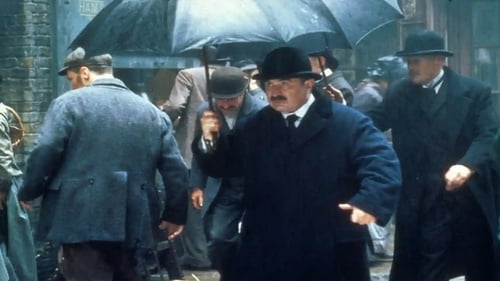
Original Music Composer
In 1880s London, pornographic bookseller Verloc is a double agent for the Russian government, providing information to Chief Inspector Heat about a lazy anarchist organization. In order for the anarchists to be arrested, an act of terrorism must occur. So Verloc decides to set up bombs – which leads to tragedy – not only for himself but also for his family, including wife Winnie and brother-in-law, Stevie.

Original Music Composer
A haunting look at children watching television.

Original Music Composer
Michael is a U.S. journalist who works for a Brazilian newspaper. One day he is put in charge of interviewing Father Louis Stephen, a famed catholic missionary who helps the needy in the jungles of Brazil. Yet he has one problem: the Father has rarely ever given an interview. However, Michael decides that he will be the first to have interviewed the Father personally, and goes on a journey to the center of Brazil, in search of the priest. Michael will soon know how hard it can be to get an interview, and that the Father's apparent media-shyness has deeper implications than he thought.
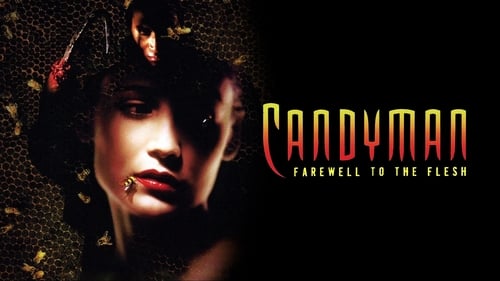
Original Music Composer
The Candyman moves on to New Orleans and starts his horrific murders once more. This time, his intended victim is a school teacher. Her father was killed by the Candyman, and brother wrongly accused of the murders.

Music
A short film directed by Paul Schrader following the story of a painting from Schrader's collection.

Music
A collaboration in which Robert Wilson and Heiner Müller let Molière die, imagine his death in tableaux with text passages recited by Müller himself. "Cinema watches Death at work." Wilson's actors watch Molière die: their vigil is hard work. Müller's comment: "The poem watches a dying man at work, his name is Molière. The poem is not a film. The film watches an actor playing a dying man called Molière."

Original Music Composer
Image and music are intertwined in this third collaboration between director Godfrey Reggio and composer Philip Glass. The film was produced to celebrate the World Wildlife Fund's Biological Diversity Campaign. The film combines images of nature with pulsing rhythms in a Microcosmos (1997) meets Koyaanisqatsi (1983) spectacle. Written by Martin Lewison
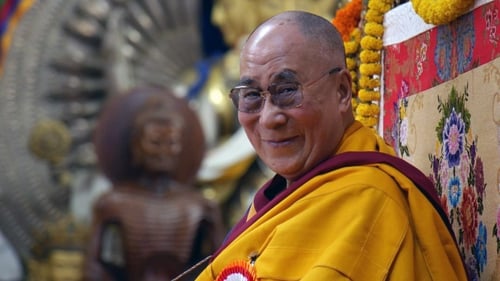
Music
The film tells the story of His Holyness the Dalai Lama
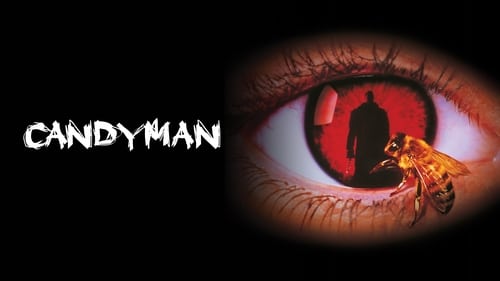
Music
The Candyman, a murderous soul with a hook for a hand, is accidentally summoned to reality by a skeptic grad student researching the monster's myth.

Music
A short made for TV with director Peter Greenaway discussing the dazzling 3.5 minute opening sequence from his film, 'Prospero's Books'. As Prospero (John Gielgud) walks through his library, Greenaway comments on the historical, mythological, biblical & fictional characters occupying the library.

Original Music Composer
This shows physicist Stephen Hawking's life as he deals with the ALS that renders him immobile and unable to speak without the use of a computer. Hawking's friends, family, classmates, and peers are interviewed not only about his theories but the man himself.

Music
On the French island of Mont Saint-Michel, Sonia meets Jack and Tom. Sonia is a Norwegian physicist who abandoned a lucrative career after discovering that elements of her work were being applied to weapons development. Jack is an American politician attempting to make sense of his recent defeat as a presidential candidate. Tom is a poet, disillusioned former political speechwriter, and Jack's close friend. As they wander the picturesque medieval abbey, the trio engage in a wide-ranging conversation on political and social problems, exchanging their varied perspectives rooted in their different intellectual backgrounds.

Original Music Composer
In a Gothic cathedral built on the mass grave of a Teutonic purge, an ancient discovery by the new librarian will release an unholy maelstrom of madness, violence and demonic vengeance.

Music Arranger
Part one of the two part abstract video art-piece, with music composed by Philip Glass and performed by the Kronos String Quartet.

Music Arranger
Abstract video art with music composed by Philip Glass. Music by the Kronos String Quartet.
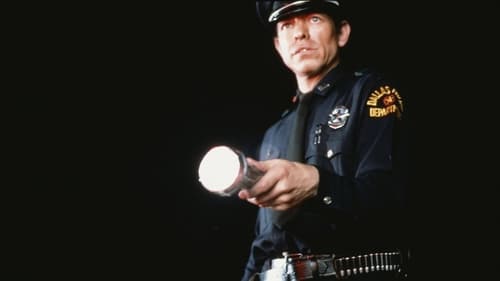
Music
Errol Morris's unique documentary dramatically re-enacts the crime scene and investigation of a police officer's murder in Dallas.
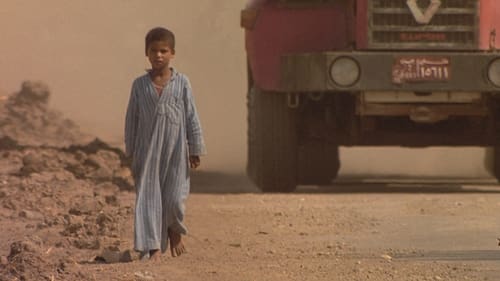
Music
An exploration of technologically developing nations and the effect the transition to Western-style modernization has had on them.

Music

Robert Wilson and the Civil Wars is an in-depth documentation of Robert Wilson’s ambitious attempt to stage an epic, twelve-hour, multinational opera for the 1984 Summer Olympics. Filmmaker Howard Brookner follows the avant-garde theatre director as he confronts a hectic work schedule, funding difficulties and relentless international travel in attempt to complete his preparations. The film examines Wilson’s unique theatrical style during The Civil Wars: A Tree Is Best Measured When It Is Down, which involves the continual creation of evocative stage sets, owing to a unique juxtaposition of movement, sound, text and image. Known for his precise, painterly images Wilson’s work derives more from visual art than the orthodox literary traditions of theatre. As a result, Wilson often challenges actors to perform in a boldly minimalist style, as well as collaborating with non-actors, such as young autistic poet Christopher Knowles in Einstein on the Beach.
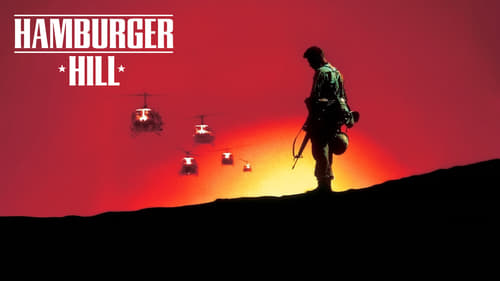
Original Music Composer
The men of Bravo Company are facing a battle that's all uphill… up Hamburger Hill. Fourteen war-weary soldiers are battling for a mud-covered mound of earth so named because it chews up soldiers like chopped meat. They are fighting for their country, their fellow soldiers and their lives. War is hell, but this is worse. Hamburger Hill tells it the way it was, the way it really was. It's a raw, gritty and totally unrelenting dramatic depiction of one of the fiercest battles of America's bloodiest war. This happened. Hamburger Hill - war at its worst, men at their best.

Himself
This documentary by Michael Blackwood looks at the development and production of Glass' opera Akhnaten. The film follows two productions by the Württemberg State Theater, Stuttgart, and the Houston Grand Opera.

Music
Two Moon July was a multidisciplinary event that featured experimental video, film, visual art, performance and music in a theatrical framework. More than thirty artists participated in the program, which was produced for the Kitchen by Carlota Schoolman and directed by Tom Bowes.

Two Moon July was a multidisciplinary event that featured experimental video, film, visual art, performance and music in a theatrical framework. More than thirty artists participated in the program, which was produced for the Kitchen by Carlota Schoolman and directed by Tom Bowes.

Music
In the Upper Room is a dance/theater collaboration between choreographer Twyla Tharp and composer Philip Glass. In the Upper Room from 1986, with music by Phillip Glass, choreography by Twyla Tharp. It's really impossible to convey in words just how brilliant this 40 minute piece is.

Music
One night in Gotham one couple ends their relationship, then another, and another.

Self
This ambitious live satellite link-up of Japan, Korea and the United States features interviews with Keith Haring and architect Arata Isozaki, and performances and works by Philip Glass and the Kodo Drummers, Charlotte Moorman, Nam June Paik, and Lou Reed. In an extraordinary section, a performance in Japan of classical Western music is accompanied by a group of Kabuki dancers.

composer (himself)
The creative processes of avant-garde composer Philip Glass and progressive director/designer Robert Wilson are examined in this film. It documents their collaboration on this tradition breaking opera.

Original Music Composer
A fictional account of the life of Japanese author Yukio Mishima told in four parts. The first three parts relate events in three of his novels: The Temple of the Golden Pavilion, Kyoko's House, and Runaway Horses. The last part depicts the events of 25th November 1970.

Himself
A television documentary produced for British Television directed by Peter Greenaway about Phillip Glass that is a recording of a performance of the Phillip Glass Ensemble in 1983 with interviews that go in depth of his style and music theory of his signature minimal sound.

Music
Abstract video art set to the music of Philip Glass.

Writer
This luminous, visionary opera tells the story of how Mahatma Gandhi developed the philosophy of satyagraha, nonviolent active resistance, as a political revolutionary tool to fight oppression, connecting his lifework to three historical figures who advanced his philosophy: the celebrated Russian writer Leo Tolstoy, the great Indian poet and philosopher Rabindranath Tagore and the heroic American civil rights leader Martin Luther King. The libretto is comprised of passages from “The Bhagavad-Gita,” India’s greatest philosophical epic, and perfectly complements Glass’ ravishing score, mysteriously transporting the audience with a serene power and an all-encompassing sense of peace.

Music
This luminous, visionary opera tells the story of how Mahatma Gandhi developed the philosophy of satyagraha, nonviolent active resistance, as a political revolutionary tool to fight oppression, connecting his lifework to three historical figures who advanced his philosophy: the celebrated Russian writer Leo Tolstoy, the great Indian poet and philosopher Rabindranath Tagore and the heroic American civil rights leader Martin Luther King. The libretto is comprised of passages from “The Bhagavad-Gita,” India’s greatest philosophical epic, and perfectly complements Glass’ ravishing score, mysteriously transporting the audience with a serene power and an all-encompassing sense of peace.
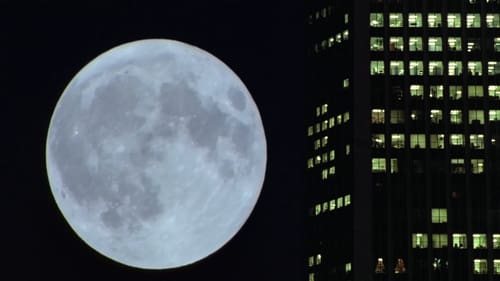
Music
Takes us to locations all around the US and shows us the heavy toll that modern technology is having on humans and the earth. The visual tone poem contains neither dialogue nor a vocalized narration: its tone is set by the juxtaposition of images and the exceptional music by Philip Glass.

Original Music Composer
Takes us to locations all around the US and shows us the heavy toll that modern technology is having on humans and the earth. The visual tone poem contains neither dialogue nor a vocalized narration: its tone is set by the juxtaposition of images and the exceptional music by Philip Glass.

Music
Surroundings of the Canal Saint-Martin’s in Paris, a popular district where modernization is just about to begin.

Music
A short animated film consisting of the movement of six circles (each with a different colour of the rainbow) that are formed by and split up into various geometric patterns.

Music
North Star: Mark di Suvero is a 1977 documentary film about Mark di Suvero that was produced by François de Menil and Barbara Rose. Born in 1933, di Suvero has become one of the most recognized sculptors of the late 20th and early 21st centuries. From about 1975 to 1977, fairly early in di Suvero's long career, filmmaker de Menil and art historian Rose produced this film, which was characterized at the time as "a tribute to the extraordinary work and life of the innovative American sculptor of monumental but delicate constructions." The film shows di Suvero making and installing several of his very large sculptures, and incorporates informal interviews of di Suvero, his mother, and others involved in his career and life at that time. From 1971 to 1975 di Suvero, an American, lived in a self-imposed exile in France in protest of US involvement in war in Vietnam and Southeast Asia, and the filming spans the end of his exile and his return to New York.

Music
The first part of the Carolyn Carlson cycle. Between her and herself. Three images of the dance are repeated, come up against opacities that do not let themselves be crossed, are lost in transparencies from which there is no reflection. The sound describes their inevitable journey: this motionless movement.

The film is about looking. I bet that slight variations of few recurrent elements would encourage the viewer to free associate and to fantasize a kind of narrative. - BM

Himself
In 1975 the composer Robert Ashley embarked on an ambitious work titled Music With Roots in the Aether. He called it an Opera (or piece of theater depending on the case) for television. The work is comprised of seven, two hours sections. Each “episode” is dedicated to investigations, interviews, and performances of his one of his peers – David Behrman, Philip Glass, Alvin Lucier, Gordon Mumma, Pauline Oliveros, and Terry Riley respectively, with the final reserved for himself.

Music
Soundtrack by Philip Glass

Music
This is the debut documentary made by Alexis Krasilovsky, author of "Women Behind The Camera" (Praeger, 1997). Shot on 16mm in 1971, the film covers much of the New York avant-garde of the time.

Music
Disbelief, shock, hostility and superstition confronted the wife of one of the filmmakers when she decided to give birth without pain medication using the Lamaze method of childbirth. Her tale is about trusting oneself and accepting responsibility even when it means rejecting popular beliefs and establishment authority.

Music
Nancy Graves statement, 1971: "Izy Boukir contains footage filmed in the Sahara during eighteen days. I wanted to extend sequences [from earlier films] and to a greater degree permit the animal motions to determine structure. An Arriflex [camera] was often positioned five to ten feet from the animals. In New York, partite animal forms were separated into two segments: as walking and as graduated motion. Through the edited sequential duration, camel morphology vies with the viewer's inherent anthropomorphism. For me this film is the most successful in that the impression of these animals as primordial beings existing in barren yet awesomely beautiful surroundings far outweighs a consciousness of complicated editing and sound relationships."

In "Hands Scraping" we see two male pairs of hands, those of Serra and Phil Glass, sweeping up steel filings strewn on the wooden floor with their bare hands, and carrying the gathered heap in their hands out of the picture.

Original Music Composer
Two nuns travel across Chicago asking people the question, "Are you happy?"

Music Supervisor
Semi-autobiographical story of Conrad Rooks, who travels to France to undergo a drug-withdrawal cure. Flashbacks to the beginings of psychedelia in San Fran. Though initially confusing, as Rooks blends drug-illusion with reality, and cuts color with black-and-white and monochrome tinted shots, "Chappaqua" is conventionally constructed with a beginning, middle, and end.

Music
Described as a fairy tale for the young and young at heart, focused on the forging of a new culture in a world threatened by ecological collapse and unprecedented technological transformation
